“If my people follows Gamsakhurdia,
I will have to go against my people”.
Merab Mamardashvili, 1989
Almost 10 years have passed since the protests of 2011. During this period we have witnessed different street actions in our country with differing levels of participation, and each time people would say hopefully: “This time is completely different, now everything will turn out differently.”
In actual fact during the past ten years of protest activism nothing has changed either in terms of the number of protesters or the nature of the protest. And that is being optimistic. Less people turned out for the protest actions in Moscow in January 2021 than in 2011 and 2012, and even less than in 2019. One hundred million views of a YouTube video were converted into approximately 200,000 people for the country as a whole and 20,000-30,000 in the Russian capital1The figures concern the protest action on 23 January 2021. It goes without saying that the fall in the number of protesters on 31 January was attributable to the preventive measures taken by the regime and, the scale and brutality of the suppression by the law enforcement authorities. At the same time, this does not contradict the trend of a fall in the number of protesters, and no relaxation of the repressive policies should be expected.. Admittedly, by modern standards this is a large number for an “offline” event. However, this is far below the number needed to influence the political situation in the country, all the more so, to coerce the regime to agree to peaceful and meaningful dialogue (which is the key). Moreover, the waves of protests during these years in Russia have never been a serious problem for the regime. The main visible result of this protest activity is the increase in the number of arrested people and political prisoners who derive no benefit from some “public pressure” and who are unlikely to released. Against this background, another such cycle of protest actions will lead to even more disappointment. Even Navalny’s command staff now understand this to be true and have declared that for the time being they will no longer call on people to come out on the streets and be bludgeoned.

TEN YEARS OF “CHANGES”
Over 10 years the Russian regime (the same one that the activists advocating protest are trying to present as “frightened” and “crumbling”:
— Has organised Putin’s re-election twice – for a third term in 2012 and fourth term in 2018;
— Has annexed Crimea and unleashed bloodletting in Donbass;
— Has sent a military contingent to Syria to participate in a civil war in the country;
— Has through private armies intruded into more than one armed conflict in Africa;
— Has adopted a whole system of repressive legislation through a supine parliament;
— Has held a plebiscite to change the Constitution, inter alia, enabling President Putin to remain in power for another 12 years after 2024;
— Has successfully and consistently fomented an atmosphere where dissenting views are suppressed and alleged internal and external enemies are hunted down.
REPRESSIONS AND ILLUSIONS
Over the past few years the information policy of the regime on covering the protests has made the transition from a wall of silence in the mass media under the regime’s control to a detailed propaganda-based dissection of the street actions in a bid to discredit any opposition. In this light, it is clear that the regime will exploit the protests to “tighten the screws” even more and “clear the field” before the so-called parliamentary elections in the autumn. And there is no point in thinking that the regime is intimidated by the protests or that they have come as a shock to the Kremlin. The regime has been preparing for the brutal suppression of any possible public action for a long time: repressive legislation has been adopted, the Special Purpose Mobile Unit of the police (OMON) and the National Guard of Russia have been strengthened, the powers of the security, defence and law enforcement agencies have been expanded, while legislation on any possible liability that they might assume before the general public has been progressively revoked.
In addition, pension reform – a patently extremely unpopular measure – showed that the authorities are not counting on understanding, and even not of pandering to the people, but are instead relying on Bolshevik methods: lies, propaganda, intimidation, repressions and terror. And let us not pretend that we don’t understand who we are dealing with and what these people are capable of doing.
This is the reality that we confront every day and may have to experience for a long time to come. And there will be a very bitter aftertaste after the events of January-February 2021 and subsequent protest actions: the courts and serious repressions. The current regime in Russia does not respect the law. That is why we can expect a second Bolotnaya Square case2The Bolotnaya Square case is a criminal case instigated by the Investigative Committee of the Russian Federation in response to peaceful protest marches in Moscow on 6 May 2012. More than 30 people were officially accused., with a respective harder line in terms of the regulatory administrative and criminal charges.
In this situation, it is essential that all of us, in whatever way we can, do our utmost to stand up to the repressions, help everyone convicted and arrested, and their families, and leverage all available options to protect the rights of the people and secure the release of political prisoners — both new prisoners and also people in prison under previous cases.
At the same time, we need to rid ourselves of any illusions and clearly understand where we live.
It is symptomatic that when he referred to the most recent protests, President Putin mentioned the shooting of the White House in Moscow in 1993. At the time, communists, nationalists, fascists and various other dissenters joined forces in the protest against President Yeltsin and his reforms. Today, this allusion from Russia’s current President resembles a warning about the determination of the regime to stand its ground and do whatever it takes.
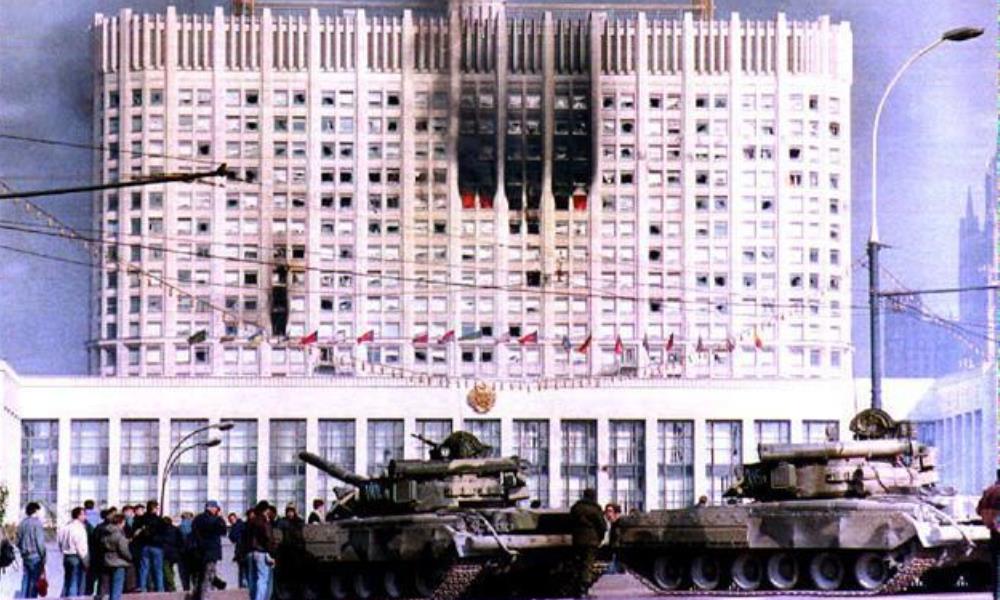
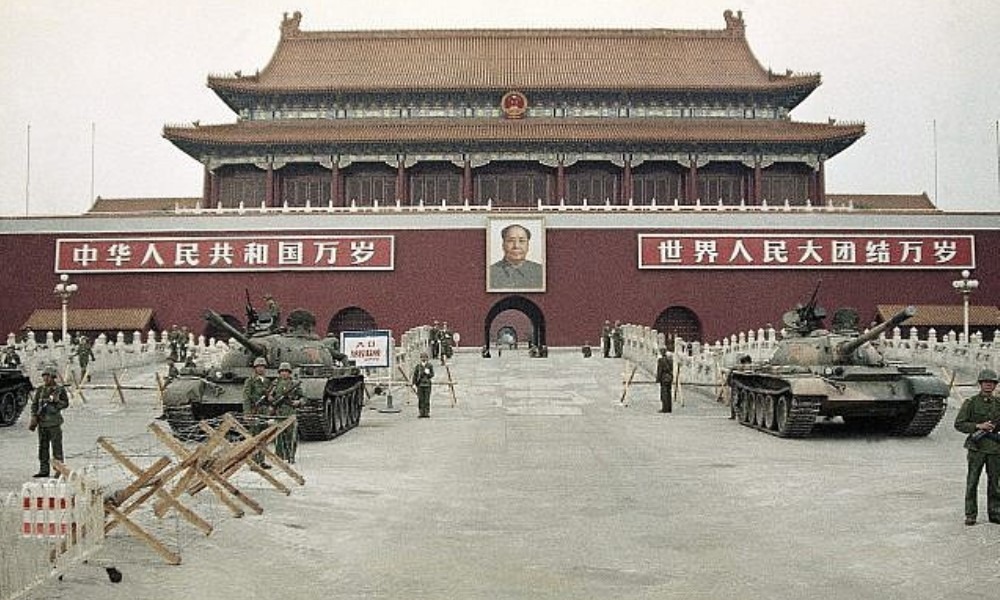
The bullish calculations from the camp of the regime’s opponents are built on the fact that the powers-that-be will retreat when faced by protests of a certain magnitude and the perseverance of the protests, because it will have scruples about using widespread and brutal methods to suppress such protests. In other words, they are counting on some kind of humanism from the repressive system, or on the Kremlin’s fear of outside condemnation. In actual fact, the situation is completely different. The behavioural benchmarks for Putin’s system are the steps taken by President Yeltsin in 1993 and President Deng Xiaoping in 1989 and his crackdown in Tiananmen Square in Beijing. This is corroborated by the events in late January – early February this year on the streets of Moscow and other Russian cities.
CORRUPTION AS THE REASON
The Russian politician Alexey Navalny came back to Russia from Germany intentionally, despite receiving an unambiguous warning from the regime that he would be arrested. The court’s decision to imprison Navalny is political, as was the change in the court’s judgment in the Kirovles case, the replacement of the status of the sentence to a suspended sentence in July 2013, transfer of signatures to him by the authorities to enable his participation in Moscow’s mayoral elections, and disregard of the repeated imposition of administrative liability and travel abroad, as legal grounds for replacing the suspended sentence with a real sentence. All the judicial and legal developments around Navalny are legally motivated and reflected until recently, to put it mildly, the intrigues and differences within the elite. Anyone who took to the streets and subsequently takes to the streets to support Navalny would do well to understand the publicly significant roles that he has been playing over the past few years.
As a blogger — whistle blower, a Zorro-style auditor of the higher echelons of the Russian regime and business, Navalny served as a marker, which made it possible to assess the level of political infighting based on the nature of the information being released. However, as everyone in Russia is virtually convinced of the existence of mass corruption in the country, Navalny’s exposures were perceived positively, whereas the economic decline and impoverishment of the population over the past ten years made it possible to capitalise on the increasing gap in the prosperity level, which has been transformed into an abyss (“Peace for Shacks, War on Palaces!”).
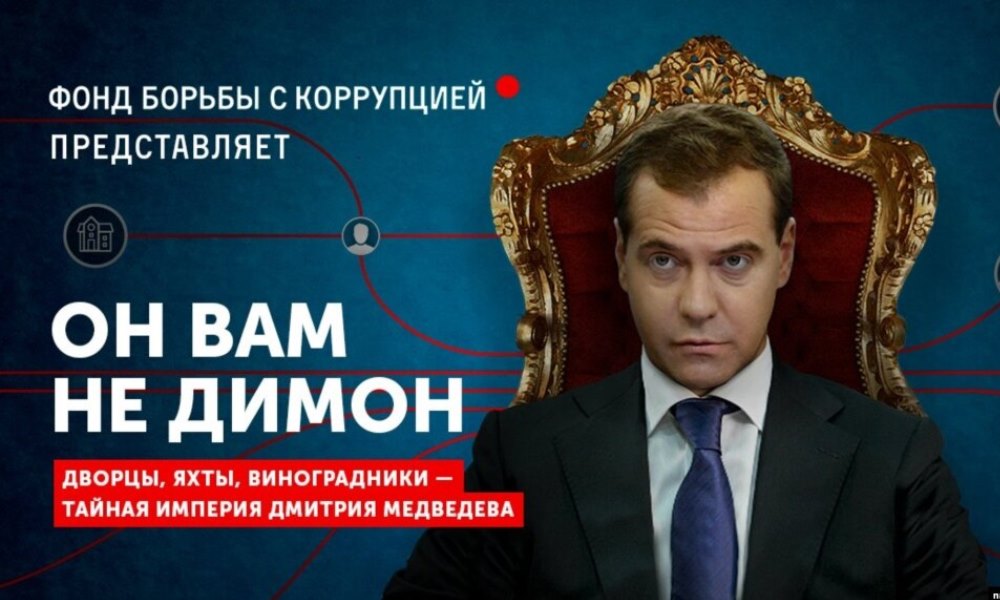
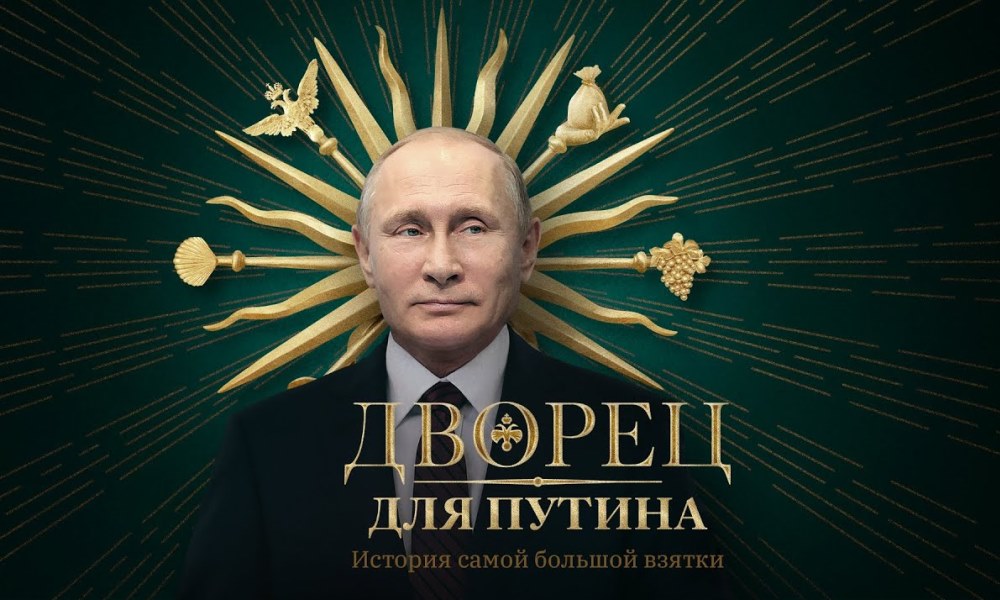
All the more so, as political populism reborn as nationalism, and frequently resulting harsh confrontations, is a dangerous global trend today. Russia is no exception to this rule.
Unfortunately, Navalny’s investigations did not yield and cannot yield practical results for society. All the “exposed” individuals remain entrenched in their positions and have kept all their money. This is not so much about age-old traditions of theft in the regime, but something else entirely: a system of privatisation based on the merger of property and the regime was established during the reforms of the 1990s, and in particular semi-criminal ones (and in certain cases, completely criminal reforms, for example – the loans-for-shares auctions), which does not even countenance the existence of an independent judiciary, independent mass media, a real parliament and honest elections in the country. However, you cannot combat corruption without a categorical separation of property and business from the state.
Therefore the key publicly significant impact inherent in the style of Navalny’s “investigative” films is to incite primitive social hatred. And this is also nothing new. It was practised by the regime itself when grabbing YUKOS from Khodorkovsky in 2003.
Unleashing class populism in Russia, provoking confrontation between the rich and poor, will not lead to anything positive. The nationalist ploy of whipping up society for the sake of the battle against Putin was one of the drivers for spring 2014, with the annexation of Crimea and war in Ukraine. Today, Putin’s system is for the time being keeping up its sleeve the card of property redistribution, but may play it again at any point to achieve its goals, once more with extremely adverse consequences, including bloodletting.
People are not only poor in Russia due to corruption. Our citizens are losing incommensurably more owing to the wars in Syria and the Donbass, owing to the arms race and the completely unlimited, opaque and uncontrollable expenses on the military industrial complex, owing to international sanctions that Russia is constantly asking for, but above all owing to the inefficient high-cost economics of state capitalism (when the incomes are private, while the losses are assumed by the state). In actual fact, corruption can only be defeated by replacing the system. Therefore let me repeat here that the real fight against corruption is not so much a film shot using drones of the estates of bureaucrats caught out embezzling state funds, but rather the political fight for a new Russian state, a new Constitution, Constituent Assembly (see “About the Future” , July 2020).
TERROR
If we turn to the attempted poisoning of Alexei Navalny, here everything is very serious.
We need a comprehensive international investigation, which will not be supplanted by any high-profile “exposures” on YouTube. As a whole, the case has nothing to do with exposing the Stalinist core of the system which is not even seeking to conceal this fact. For example, the sentence against the historian Yury Dmitriev represented the unannounced, or using current terminology, hybrid political liquidation of an individual who had been investigating state terror. And nothing has been concealed – either the methods used or the participants.
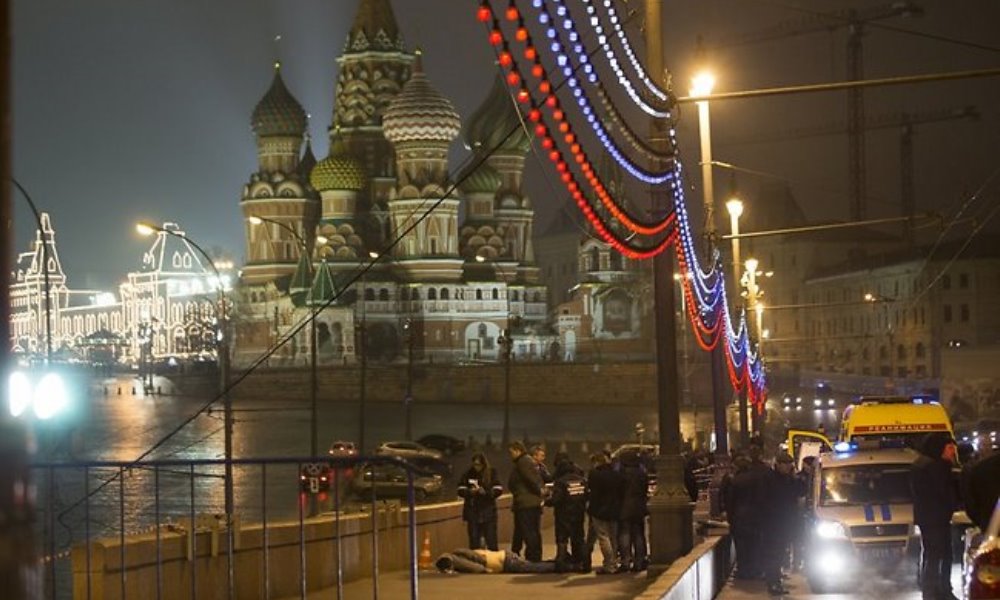
However, Navalny’s poisoning is not simply a crime. It may well attest to the existence in Russia of “death squads” complicit in state terror against political opponents. In addition, the extremely disturbing issue of the use of chemical weapons remains on the agenda. Here we need to identify specifically the actual perpetrators and client and disclose the entire criminal structure. This is vital for society as a whole. It is also essential that we see through to their logical end the investigations of the murders of Boris Nemtsov, Yury Shchekochikhin, Timur Kushaev, Farid Babayev and Larisa Yudina, and also investigate the murders and assassination attempts on other politicians and public figures in contemporary Russia.
POLITICAL VECTOR
The political line of Navalny is populism and nationalism. In my opinion, this was articulated most accurately in 2011 by Valeria Novodvorskaya: She noted that Navalny could become the “future leader of madding crowds, on top of that with a Nazi slant”. Novodvorskaya added: “The fight against corruption could lead to what has already been achieved in Belarus. Lukashenko deceived the people by talking all day and night about a fight against corruption. And he easily won over gullible Belarusians. Meanwhile, the short-sighted intelligentsia supported him, deciding that they would be able to lead him by the nose. Well we can just look at the Belarusian landscape today … Arrests are not some political indulgence. The Bolsheviks also did hard labour in exile, while Dzerzhinsky spent 10 years in prison. Hitler was also imprisoned. Sadly, not for 15 years. Maybe, if there hadn’t been a Second World War… If the crowds follow Navalny, the country in future can expect fascism… The war which is being waged, … is not by a long shot being waged only against Putin. It is being waged for a non-democratic future of Russia. It is being waged for past communism and future fascism. And Navalny is one of the potential leaders of this new calamity.”
Since then nothing has changed. There is nothing positive in Navalny’s aspirations to participate in Russian politics with the ideas and agenda that he proposes. When neo-Nazis killed human rights advocate Stanislav Markelov and journalist Anastasia Baburova in 2009, Navalny organised the “Russian marches”, where strictly speaking attendants incited inter-ethnic hatred and advocated similar murders. Navalny did not conceal this nationalist vector during the war with Georgia, and also when commenting on the war in Donbass (his dialogue with Strelkov-Girkin says a lot).
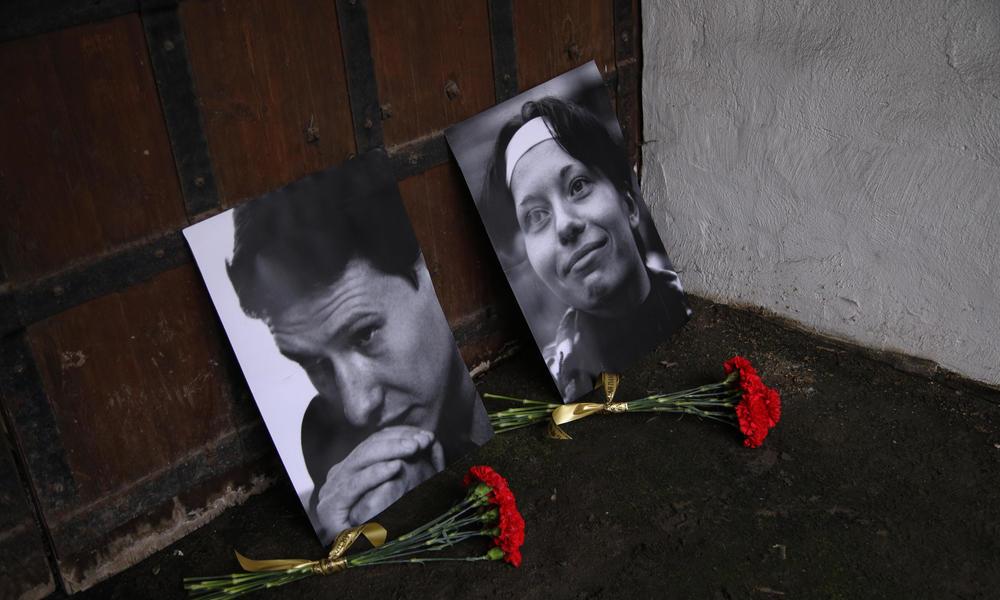
Neither Navalny himself, nor his entourage are concerned about the ruined fates of individuals who turned out for the unauthorised protest actions further to their calls and ended up behind bars (one merely needs to recall the promises from Navalny and co. of cash compensation through the ECHR in the case of detention in the protests). As sole leader, Navalny only focuses on himself and clamps down hard on even hints at any coalitions.
This is why everyone should decide for themselves whether to support Navalny or not as a politician. However, the following needs to be understood: a democratic Russia, respect for the individual, freedom, a life without fear and without repressions – all these factors are incompatible with Navalny’s politics. We are talking here about fundamentally different directions.
NATURE OF THE PROTEST
At the most recent protest actions there was no coherent demand to free political prisoners (even though they include individuals who were sentenced for participating in summer 2019 in the protests against the falsifications and prohibition of the closest allies of the founder of FBK (the Anti-Corruption Foundation set up by Navalny in 2011) in parliamentary Moscow elections, there were no demands to stop the war in Ukraine. All the demands concerned only Navalny.
Everyone is invited indiscriminately to participate in the personalised anti-Putin coalition: communists, nationalists, left wing, right wing … In general, they will take anyone, as long as they don’t support Putin. And the political technologies are nothing new. This was already the case in October 1993 in the White House.
You never follow the crowd — regardless of the fervour and energy of the masses, regardless of the aggression unleashed on anyone who is out of step, moreover who is moving in the opposite direction. Politicians and public figures, who are today afraid of being steamrollered by accusations of failing to support the protest or who count on riding this wave, should have already understood that this wave will also wash them away.
Incidentally, this concerns not only — and in the current situation, perhaps, not so much — the threat of the national Bolshevik revolutionary triumph as in the 1917 model. To all intents and purposes, Navalny has stopped being a pawn in this game played by the authorities with society (or its politically incompetent liberal creative wing) since 2011. However, this does not mean that Navalny and his entourage have broken with their previous ties and dependencies on the authorities – simply the game has changed. It is quite possible that Navalny and his team are being led “blindly”, while others will reap the harvest – it is highly likely that they come from the same Putin system, in a bid to protect it or on the contrary, to replace the façade. At the same time, it is important to understand and remember that Putin’s system is based on far more than one individual – Putin started building it, and the system will not disappear of its own accord.
INFORMATION BUBBLES AND CHOICE OF THE FUTURE
It is particularly hard to talk about this, as in practice we are confronted with manifestations of problems being discussed all over the world and where an effective solution has yet to be found. I am referring here to the malfunctioning of public communications which resulted in the information revolution, disintegration of the information space into radicalised clusters, and the formation of “bubbles”, whose dwellers literally do not want to see or hear anything that is inconsistent with their point of view. People in Russia already want to change the political reality today, they are tired and they need hope.
Navalny creates an alternative information picture for his supporters. However, these are not facts used to counter propaganda, this is not truth against lies. For example, in the film about “Putin’s palace”, the key is not the palace, but the image of Putin quaking in his boots, afraid of Navalny and his exposés. In addition, one of the notions of the authors was to build an associative link between Putin and Yanukovych, whose tasteless and pompous residence came to symbolize the end of his regime. Only now, instead of a golden loaf, you have a golden toilet brush. All this represents the sale of emotions in accordance with consumer advertising technologies. For it is better not to live in a country where the future has been lost, but instead be on the cusp of the emergence of a wondrous Russia: “ I had not seen the ascent, but I understood: any minute now — and it would happen.”
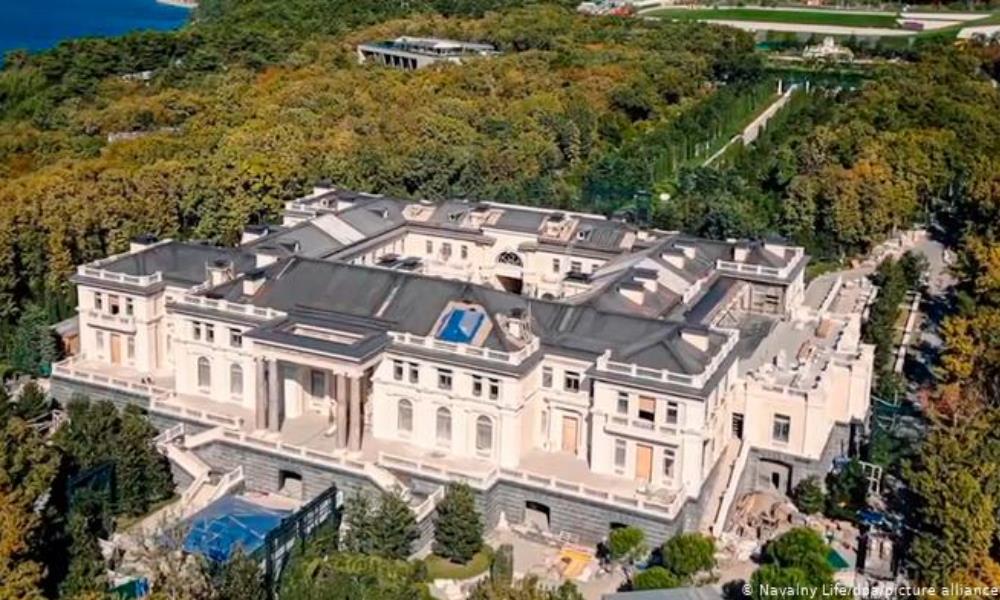
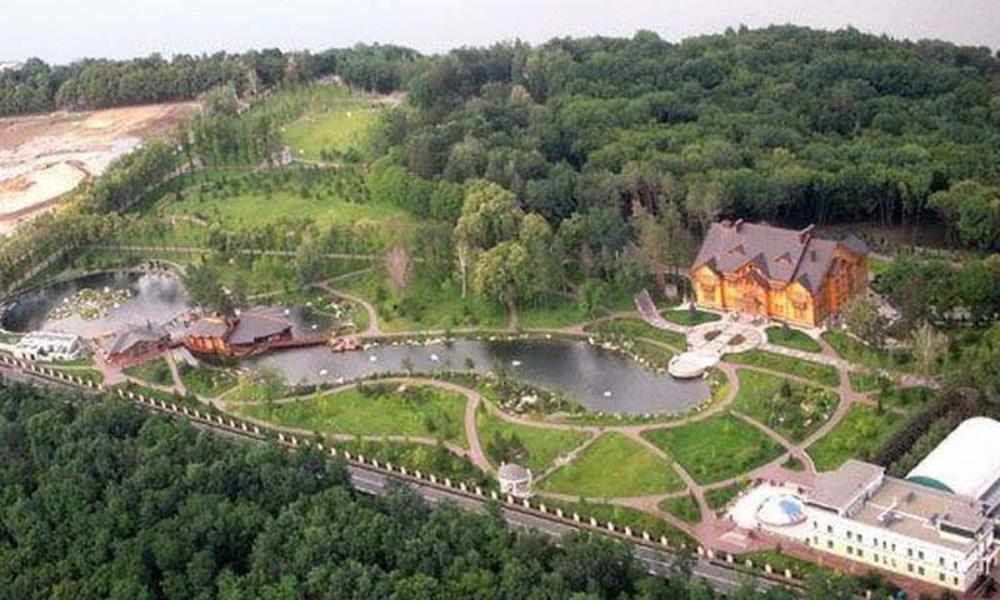
However, we are not talking here about the advertising of an iPhone or training shoes: we are talking about the future of the country and everyone who lives and will live there. It is cynical to exploit the fatigue of the people, their sensation of the loss of the future for ulterior motives, including political ones. This is called fraud and this should be resisted, notwithstanding the difficulties and unpleasant consequences. The goal does not justify the means. We must fight for the future with our eyes wide open and an understanding that the path to attaining our future will be long and extremely hard.
Our country and our compatriots deserve honest and contemporary politics, 21st century politics, politics, where life and human dignity represent the key priorities.
WILL THE WEST HELP US?
After the shock of the storming of Washington State Capitol, it was hoped that leading Western democracies would seek energetically ways to purge modern politics of populism and nationalism – when people fight for power by preaching hatred and exploiting crowd pumped up by propaganda when the real problems of the state and society are merely used as a tool of influence.
However, regardless of what the “collective West” does to sort its own house out, it should be borne in mind here that owing to a systemic misunderstanding of developments in different parts of the world, Western politicians commit serious mistakes. One only has to look at the politics deployed by the West in past decades in respect of Myanmar: Aung San Suu Kyi was glorified and awarded the Nobel Peace Prize. This was followed by her return to power in 2016 and subsequent military repressions with her connivance, up to and including the genocide committed against the Muslim Rohingya minority in 2017, and as a result the military coup in January 2021, with Aung San Suu Kyi ending up behind bars. Now, however, the West tries to avoid making any mention of the Myanmar “human rights advocate”.
Russia is perceived more and more negatively in European and American political circles. And this did not start yesterday. Just remember how in June 2001 in Ljubljana George Bush Junior looked Putin in the eyes and “found him to very straightforward and trustworthy”. Consequently, it is useful to know the West’s opinion, but we should not take our lead from them.
In addition, it goes without saying that the global outcry after Navalny’s poisoning was not related to him directly, but rather to further suspicions that Russia had been using chemical weapons. Naturally, the West is afraid, which is why they made a big show out of the strange poisoning placed in their lap. And such a reaction is understandable in the context of the new Cold War that Russia, and Putin personally, has clearly been trying to provoke. And here it is important to remember Boris Nemtsov’s murder in 2015. As a political figure, Nemtsov was far more important than Navalny, but this was considered an internal Russian matter in the West, and no journalistic investigations were conducted similar to the one today.
Meanwhile, the West, with its one-size-fits-all approach to democracy, so to speak, in non-democratic regions, could actually lose influence and remain outside the picture if it fails to learn to understand what is happening. Arguably, this also concerns Russia. Today standard arrangements and solutions from the 1990s are being applied in the West to complex and abnormal situations.
When it comes to processes in Russia, from this perspective the equation of political leadership to the ownership of technologies to manipulate mass consciousness is a mistake from the past which has engendered the problems that we face today. And it is extremely misguided practice to state that the West has a developed democracy, whereas we have Putin’s system, and that anything goes in the fight against this system. Such an approach harks back to the cautious dismissive attitude of the Soviet and post-Soviet elite towards the people “who are not yet ready” for real democracy and always require some helping “hand” – whether it be underhand (dictator) or through sleight of hand (manipulator).
We cannot build a decent future if we don’t also adopt today with people and citizens an approach which corresponds to the Russia that we want to create. It is vital that the protest is a politically conscionable and civil act in the fullest meaning of this word. The core of such a protest should be derived from people who openly oppose Putin’s system, but at the same time do not advocate populism, oppose nationalism, any leadership cult, the Bolshevik incitement of social hatred, reject the substitution of democratic procedures and institutions by the power of the crowd and manipulation. These people also represent the core of Russia of the future. We will fight to represent their interests.
DO WE ONCE AGAIN HAVE TO PICK THE LESSER OF TWO EVILS?
There are people who don’t know what to do after Navalny’s imprisonment. Even though it is easy to understand that the era of post-Soviet modernization — the construction of a democratic society and statehood in Russia — ended in defeat. And the formal symbol of this defeat was the destruction of the Constitution last summer together with the establishment of the de facto eternal immutability of unrestricted personal power.
Then a new sombre era started in July 2020. Could we really have expected in these circumstances anything else than the sentences meted out by the courts and rigid repressions against protesters? Naturally, I am not talking here about political scientists, but instead as a rule, the “thinking” intelligentsia of Russia’s capital. Previously, in such situations — for example, after Khodorkovsky’s arrest – these “thinking” citizens, after grieving once again over the fact that the regime “had hit rock bottom” and “was on the precipice”, initially reverted to their shells and focused solely on their personal lives, but then started to think about who to vote for. Today, the “New People Party” has been prepared for them on one wing, and the Party “For the Truth” on the other. The “heavyweights” of the liberal democratic “external face” will be identified both for the membership of these parties, and also for their promotion with corresponding target audiences.
For a long time now support from obvious Kremlin projects from “protest people” has appeared quite likely. Just remember how immediately after the winter of Bolotnaya Square in 2011-2012, a presidential campaign was conducted in support of the billionaire Prokhorov, with millions of votes cast for him, which were immediately after the elections flushed down the toilet together with the plans to create a new party. Furthermore, it is clear that many “protesters” did not simply “shut their eyes” about the discernible link of the candidate with the Kremlin, but actually perceived an advantage — owing to cynicism, a political inferiority complex, contempt for the people and primal paternalism, conviction that freedom can only become from above, from the table where the grown-ups sit.
It is specifically owing to this conviction that in 1996 these people came out to vote for Boris Yeltsin and hyped up general Lebed, and in 2018 for Ksenia Sobchak. Who knows, possibly in autumn, in support of Navalny and his “Smart Voting” project, the “thinking” citizens will vote for the communists or the Just Russia party, which has been transformed into national socialists, for anyone other than the United Russia party (but for anyone who will defect to this party or to the LDPR at the first possible opportunity).
Paradoxically, the emotional disappointment over the outcome of the most recent court case over Navalny in this sense is indicative. Any other sentence appeared highly unlikely. However, the hand-wringing and wailing on “how can we carry on living” merely confirms the fact that the judges had been waiting until the last moment for the powers that be to wink for his release. This leads to the endless jeremiad and conversations about “systemic liberals”, concerns for Chubais, and the expectation of some unprecedented, personalised sanctions, whereupon Putin’s oligarchs will be expected to rise up against their boss.
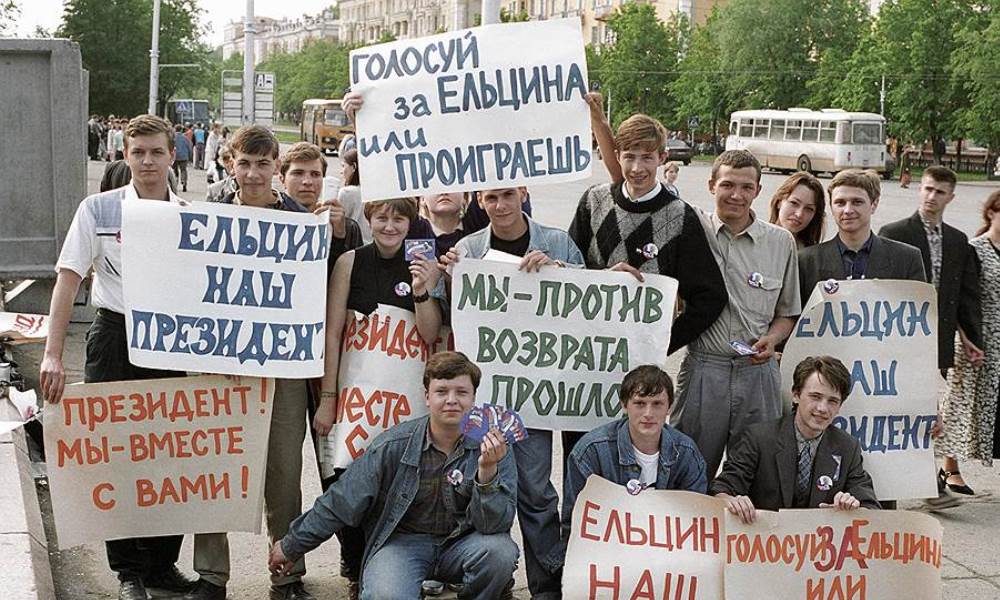
The habit of “holding their nose” before voting — and subsequent sighs along the lines of “who could have imagined that this would happen” — these have been constant features of Russia’s so-called educated class since the mid-1990s. Whereas back then everyone had been obliged to support Yeltsin, as communism served the bogeyman intimidating society, today the new propagandists calling themselves members of the opposition, browbeat people tired with the immutability of the regime and corruption about Putinism. They consciously prompt them to choose the lesser of two evils, but do not say that the lesser evil, after conquering the bigger evil, always becomes even bigger than the original.
Meanwhile once again — for the eleventh time in 28 years (three times at presidential elections and eight times at parliamentary elections) — we will propose an alternative: a path to freedom and dignity. We will convince, prove and collect unimaginable amounts of money to participate in these so-called elections, try to limit the falsifications, summon all our strength and move forwards to a principally new Russian statehood, a New Constitution and Constituent Assembly.
WHAT SHOULD BE DONE NOW?
Protect people from repressions. Launch a political fight for a change in the system, against the immutable regime and authoritarian personalised rule. Propose an alternative on everything: state structure, the economy, domestic and foreign policies.
The time has come to create a serious skilled alternative — from professionals able to govern the state in a new light, valuing freedom and respecting people who actually love and understand Russia and have nothing in common with nationalism and populism.
To start building the new state, we will need a new Constitution, we will have to convene a Constituent Assembly, implement radical economic reforms to eliminate inefficient state monopoly capitalism, introduce a guaranteed basic income for the citizens of our country, implement such programmes as Land-House-Roads and Gas for Every House. This is also a content-rich alternative to Putin’s dead end.
It is naïve and dangerous to hope that any leader or group of leaders will bring all this to the table. Politics, creative politics involves the participation of every individual or many people based on joint creativity. To achieve this end, you must join a political party which defends your interests. This is not some indulgence, this does mean executing someone’s request, or offering someone support — only you and your children can do this.
How do you achieve this goal? You need to submit alternative proposals to people, convince, explain, and gain their trust. In other words, you need to learn how to win at elections in the existing environment.
What does this means in practice? Here is the action plan.
At least 20 million people must vote at the elections in September each year, regardless of how they are held (incidentally, this might well be the last-ever elections), for freedom and self-respect, in other words for Yabloko. We are talking about people who don’t support Putin or populists-nationalists. This will serve as the basis for dialogue with the regime, and we will be able to start real regime change. Then people will live far more safely, while the police will behave completely differently. Then freedom will start, and we will be able to live without fear.
To achieve this goal, the following is key:
1. Hundreds of thousands of observers will be required to prevent mass falsifications. In Russia there are 97,000 polling stations — this means that at least 300,000 observers (members of the commissions) will be required. Sign up to be observers right now! Take a training course and get ready.
2. Become supporters of Yabloko. As our supporter, you will promote the narrative and advocate freedom and justice, life without fear, peace and friendship with neighbours, the inviolability of private property and fair competition, law and a law-based state, true federalism, no to corruption, an independent judiciary and many other things of key significance for our people. Our programme explains how this can be done. Tell people about the programme, campaign, convince them, distribute booklets and leaflets. Explain that voting for Yabloko today is the only way to start changing life for the better. Every single Yabloko supporter must win over 50 people in the remaining six months, bring them to polling stations and prevent attempts to falsify the results. Do this for yourselves and for your children. For the time being, this can be done peacefully without fights and beatings, without arrests and courts! Just do it!
3. Support Yabloko’s petition for the immediate release of political prisoners in a bid to attract 20 million signatures. Whether the regime proceeds to release wrongly convicted people or not, let them know: “Millions of people demand this and will achieve this goal, using all available means”. This means fighting repressions.
4. If you share the views in our programme Memorandum of a Political Alternative become our candidate at the elections. Yes, we will promote solely and exclusively dedicated like-minded people, and not just anyone. That is why we assume responsibility for each of our candidates, and for his work as a deputy when he is elected.
5. Participate in the work of the Public Constitutional Council. We are preparing a new Constitution of Free People.
6. Learn to be real politicians – come to Yabloko’s Federal School. We will share with you the experience and knowledge that we have acquired over 28 years of participation in Russian politics. The country needs hundreds of professional and honest politicians who are not corrupt! Come!
7. Help us collect funds for the election campaign. Soon we will announce the collection of funds for the campaign to the State Duma of the Russian Federation.
Mounting a political challenge in today’s Russia is extremely difficult. We know far from everything, but are learning— come, participate, work and promote ideas. Learn to be patient. We sincerely want your serious participation. And if we do not organise everything immediately, be patient or help us to sort this out. This is definitely better and more intelligent than attempting to fight OMON.
And remember, Putin’s system wins when you don’t participate in voting. The system needs a “No to everything”. The system needs politics to be conducted once again by artists, musicians, TV presenters, people like [society hostess] Ksenia Sobchak, [oligarch] Mikhail Prokhorov and [show business starlet] Olga Buzova, in general, anyone at all as long as they are not politicians. Instead of joining forces round a party that has existed for almost three decades, we will once again hear calls for the creation of something – a “coordination council”, a third, fourth or fifth force. Dilettantes and random individuals will do this. Furthermore, they are already making such calls, their surnames are already known. As usual, such activity will have zero impact. Meanwhile, people will be stuck in pre-trial detention facilities, serve time in prison colonies, while the regime will grow stronger and laugh into their Stalinist moustaches about our stupidity.
One final comment. Nobody knows when this wind of change will blow, when dozens of millions of people throughout the country will simultaneously want change, as was the case at the turn of the 1980s and 1990s. It is our responsibility to be at the ready with our sail: a draft of the new Constitution, a programme of economic reforms, skilled staff, so that we know how to set sail correctly and on time.
The key is to believe in ourselves and our people more than in any technologies, algorithms and blueprints.



